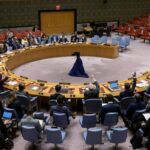Syria and bioweapons: The need for transparency
By Filippa Lentzos | November 21, 2013
Like most others in the biological disarmament and non-proliferation community, I have been sceptical of the handful of reports suggesting there is an active biological weapons program in Syria. But late in September, an article headlined “Assad: Syria has more lethal weapon [sic] than chemical weapon [sic]” was published in Ya Libnan, a Lebanese English-language site bringing news from Beirut to an international audience. This piece was based on an article published earlier that same month by Al-Akhbar, a Lebanese daily with close links to the government of Syrian President Bashar al-Assad.
Both news items centered on an interview with President Assad in which he claimed he had little use for his chemical weapons: “Chemical weapons were manufactured in the ’80s as deterrence in the face of Israeli nuclear weapons. Today, it is not a deterrence force anymore.” Instead, he said, he relied on a more powerful weapon: “We have deterrence weapons that are more important and more sophisticated to challenge Israel, which we can blind in an instant.”
It’s unclear whether Assad’s reference to a blinding weapon was literal or figurative. The possibility—however remote—that he might be referring to biological weapons that actually do cause loss of sight, is one that must be taken seriously. The international community must immediately deal with any indication that bioweapons could start to become relied on as a deterrent force, eroding the exceptionally strong norm against the use of these weapons.
The meaning of blind. The use of the word “blind” might be a figure of speech, meant to convey the impressive force of a particular sort of conventional or cyber weapon. Another possibility, of course, is that the Syrian arsenal contains no blinding weapon, and Assad’s statement is simply political posturing or scaremongering by Al-Akhbar, an openly anti-Israeli, anti-US newspaper. Even so, this phrase—“we can blind in an instant”—was repeated by a Syrian observer interviewed for the Ya Libnan piece, who said: “the UN experts who returned to Syria should look for that more lethal weapon that can instantly blind.”
There is a less obvious possible explanation for Assad’s unusual invocation of a blinding weapon, but one still worth entertaining: He could have referred to a biological weapon that attacks victim’s eyes and causes loss of sight. Enterovirus 70 (EV-70), for one example, causes hemorrhagic conjunctivitis, an acute, highly contagious disease of the eye resulting in extreme pain, a swelling of the eyelids, ruptured blood vessels in the eye, and temporary blindness.
The virus does not immediately jump out as a typical choice for a biological weapon. It didn’t form part of the main biological weapons programs in the United States and the Soviet Union, and it isn’t listed as a pathogen of particular concern on the select agent list created by the US Centers for Disease Control.
Yet, Syria’s neighbor, Iraq, is known to have had an interest in EV-70; its biological weapons program started working on the virus in the early 1990s. The virus could make sense as a weapon in the Middle East. It doesn’t necessarily require much weaponization, and once introduced into the civilian population, it spreads easily, particularly in areas of poor sanitary conditions and overcrowding, shed in tears and transported via fingers, towels, clothing, and even food and water. The sharp, severe outbreaks of intense, untreatable conjunctivitis that it causes can elicit high levels of fear and generate a level of societal disruption vastly disproportionate to the burden it poses in terms of illness and death. Indeed, while acute hemorrhagic conjunctivitis is very incapacitating, it is not fatal, and outbreaks seem to cease as suddenly as they arise, with the disease running its course in about a week.
Making sure. This is not to suggest that Syria has a sophisticated bioweapons program with the capacity to cause thousands of casualties, or that it is necessarily developing an EV-70 weapon. As a recent Bulletin article by Sonia Ben Ouagrham-Gormley clearly lays out, there is little evidence in the public domain that Syria has such a program. There are, however, indications Syria could have a rudimentary bioweapons capability, as many have long believed, and the Assad regime may come to rely on this capability as a deterrent force, once chemical weapons are taken out of the Syrian arsenal.
Assad doesn’t deny having biological weapons. In an interview for the German magazine Der Spiegel, he claimed that Syria never denied having any chemical weapons, but always spoke in hypotheticals: “We always phrased our statements ‘If we had [chemical weapons], then… .’ But we never lied.” This is also the case for biological weapons. When asked directly by Der Spiegel whether Syria has biological weapons, Assad responded: “We didn’t give any information in this regard because it is considered classified information.” Assad is careful, though, also to say that his ambiguity about biological weapons should not be take as a confirmation that Syria possesses them.
Similarly, back in July 2012, Syria’s Foreign Ministry spokesman said in an interview that the regime would never use “any chemical and biological weapons” inside Syria. He said the Syrian military was safeguarding “all stocks of these weapons.” It was the first direct acknowledgement by Syria that such stockpiles exist, and it was retracted shortly afterward via Twitter.
The norm against the use of biological weapons, enshrined in the Biological Weapons Convention, extends far, even to countries like Syria who have not yet ratified the treaty. And clearly biological weapons, and particularly something like EV-70, do not make sense for tactical use in a civil war. But could the deliberate infliction of disease become a strategic military option in an increasingly desperate Syria, and be exactly the sort of powerful deterrent force Assad was discreetly referring to in the Al-Akhbar interview?
Signatories to the Biological Weapons Convention have agreed that they are determined to prevent even the possibility of bioweapons use. The US State Department and Intelligence Community both claim that Syria has an active bioweapons program and elements of it “may have advanced beyond the research and development stage and may be capable of limited agents production.” Clearly, it’s high time for the United States and other countries, like Israel, that claim Syria has a bioweapons capability to place the evidence they have for these claims in the public realm.
Syria’s failure to ratify the Biological Weapons Convention needs to be addressed effectively by the international community. It was a lost opportunity that more pressure was not placed on Assad to join both the chemical and biological weapons treaties at the same time. In light of the possibility, however small, that bioweapons may start to play a central deterrence role for Syria, this failure needs to be urgently rectified. Any deterioration of the norm against bioweapons could provide a seedbed of ideas for other despots and authoritarian regimes that think a bioweapons program might be something they could get away with. Not acting now undermines the Biological Weapons Convention and puts the credibility of the international community on the line.
Together, we make the world safer.
The Bulletin elevates expert voices above the noise. But as an independent nonprofit organization, our operations depend on the support of readers like you. Help us continue to deliver quality journalism that holds leaders accountable. Your support of our work at any level is important. In return, we promise our coverage will be understandable, influential, vigilant, solution-oriented, and fair-minded. Together we can make a difference.
Topics: Opinion














